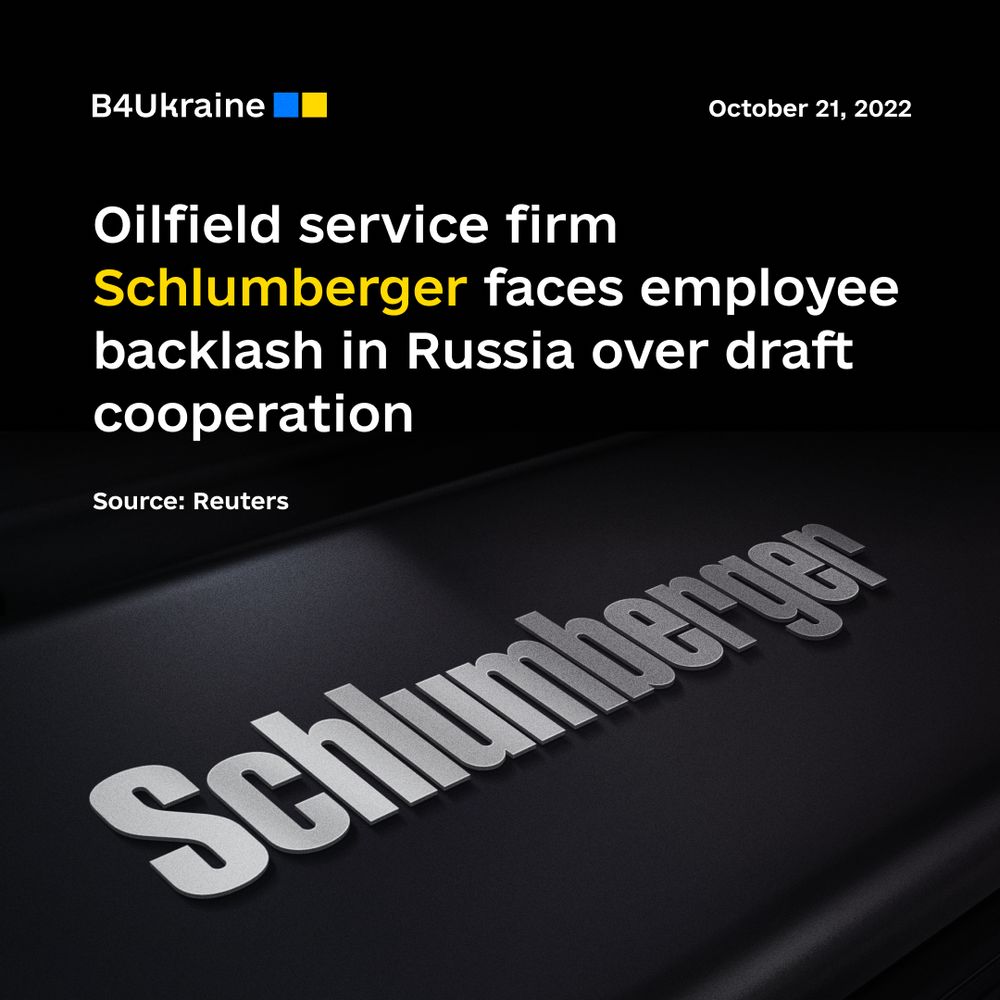
It has been a month since Putin announced partial mobilization in Russia, enacting a law obliging companies to assist in conscripting soldiers. Some internationals have tried to resist this by filing for exemption from military service for their employees. But some haven’t, choosing to cross the borderline between indirect and direct involvement in the Kremlin’s unlawful war against Ukraine. One of them is the international oilfield service provider Schlumberger with around 10,000 employees in Russia.
According to people familiar with the matter and internal documents in possession of Reuters, Schlumberger has cooperated with Russian authorities by delivering the military call-ups and not authorizing remote employment to escape mobilization. “The local leadership team is managing an incredibly complex and difficult situation,” a Schlumberger spokesperson said in mid-October in an emailed statement, adding managers are obligated “to comply with local laws and regulations, especially when failure to do so could create additional risk for our local employees.”
This has caused a significant backlash. Schlumberger employees have told Reuters they risk losing their jobs if they try to evade military mobilization and that they must receive draft notices at their workplaces if they stay, steps they see as Schlumberger’s support for the war.
During the next week, the company neither refuted the information nor clarified the steps Schlumberger is willing to take to protect its employees from being conscripted. Schlumberger is evaluating unspecified options for its thousands of Russian employees as the war in Ukraine escalates, the company’s CEO Olivier Le Peuch told Reuters in response to the backlash.
Schlumberger’s case shows how continuing business operations in Russia now is a no-win situation for multinationals. If they comply with the Kremlin’s demands, they face backlash from their employees and the public and assume unprecedented legal, reputational, and financial risks due to getting directly involved in Putin’s war efforts. On the other hand, if they try to help employees avoid the draft, they “could create additional risk for our local employees,” as Schlumberger put it, and keep providing indirect financial support for Putin’s war machine. Eventually, there is only one way to avoid both scenarios - leave Russia immediately.